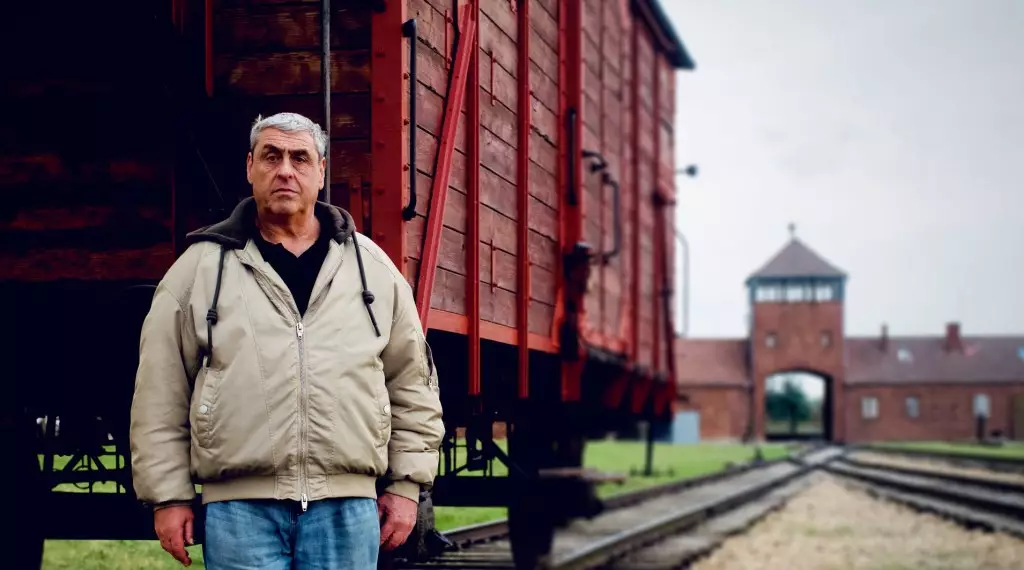The upcoming documentary film, “The Tattooist’s Son: Journey to Auschwitz,” uniquely connects past horrors with personal exploration. Starring Gary Sokolov, the son of Lali and Gita Sokolov—figures central to the acclaimed ‘The Tattooist of Auschwitz’—this documentary promises to uncover untold stories that shaped the lived experiences of Holocaust survivors. The film not only encapsulates Gary’s journey as he confronts the remnants of his parents’ heartbreaking past but also serves as a poignant exploration of memory and legacy amidst harrowing history.
The focus of this documentary sheds light on the little-known narratives that reside in the shadows of well-trodden history. While “The Tattooist of Auschwitz” illustrated the romantic saga between a tattooist and his love during unfathomable circumstances, the documentary aims to access the unseen emotional landscape through Gary’s eyes. His journey to Auschwitz, a site emblematic of suffering and survival, marks a cathartic attempt at reconciling his parents’ traumatic past with his present, thus serving as a bridge between generations.
What makes this documentary particularly compelling is its exploration of intergenerational trauma—a topic that often goes unaddressed but is deeply ingrained in the psyche of descendants of survivors. Gary Sokolov’s decision to embark on this journey stems from a lack of firsthand knowledge regarding his parents’ experiences, which they chose not to relay to him. This silence, a common trait among many survivors, raises profound questions about memory, storytelling, and the burden of shared trauma.
As we delve into the documentary, audiences will gain insight into the complex dynamics between revelation and restraint within survivor families. How much should survivors share with the next generation, and at what cost? By accompanying Gary as he seeks answers, the film exposes the emotional intricacies involved in reviving poignant memories that have long been buried. This aspect is essential in understanding how the past impacts contemporary identities and relationships.
Significance of the 80th Anniversary
The documentary’s release is timed purposefully with the 80th anniversary of Auschwitz’s liberation in January, reinforcing the importance of historical commemoration. Marking such anniversaries serves as a reminder of the atrocities that unfolded in the past and guarantees that these memories are not lost to time. Dan Korn, VP of Programming at Hearst Networks EMEA, emphasizes the necessity of narratives like Gary’s to ensure history does not fade from collective memory.
Moreover, the documentary’s production aligns with previous Sky History efforts, highlighting its commitment to not just recounting history but also interrogating its implications for future generations. Projects like this one validate the need for continued dialogue surrounding topics as painful as the Holocaust and serve as educational platforms that encourage reflection and understanding.
Drawing on the original drama’s success on various global platforms, the documentary promises to feature a mixture of archival footage, interactions with cast members who portrayed Gary’s parents, and reflections from author Heather Morris. By integrating both personal and historical narratives, “The Tattooist’s Son” seeks to create a multifaceted viewing experience that resonates on emotional and intellectual levels.
As the viewers engage with Gary’s unfolding journey, they are invited to confront the complexities of love and resilience that emerged from the darkest of times. The documentary excels in humanizing historical events, allowing audiences to grasp the human elements behind statistics and dates. It honors not only the lives that were lost but also those who survived—in their love and in their silence.
“The Tattooist’s Son: Journey to Auschwitz” is anticipated to be a critical addition to the discourse surrounding the Holocaust and its lingering impact on families of survivors. The documentary aims not merely to tell a story but to excavate layers of memory, pain, and love while highlighting the importance of understanding our shared history. This exploration of trauma across generations stands as a vital reminder of the lessons learned from the past, urging us to continue honoring those who lived through it, as we navigate our own paths forward.

